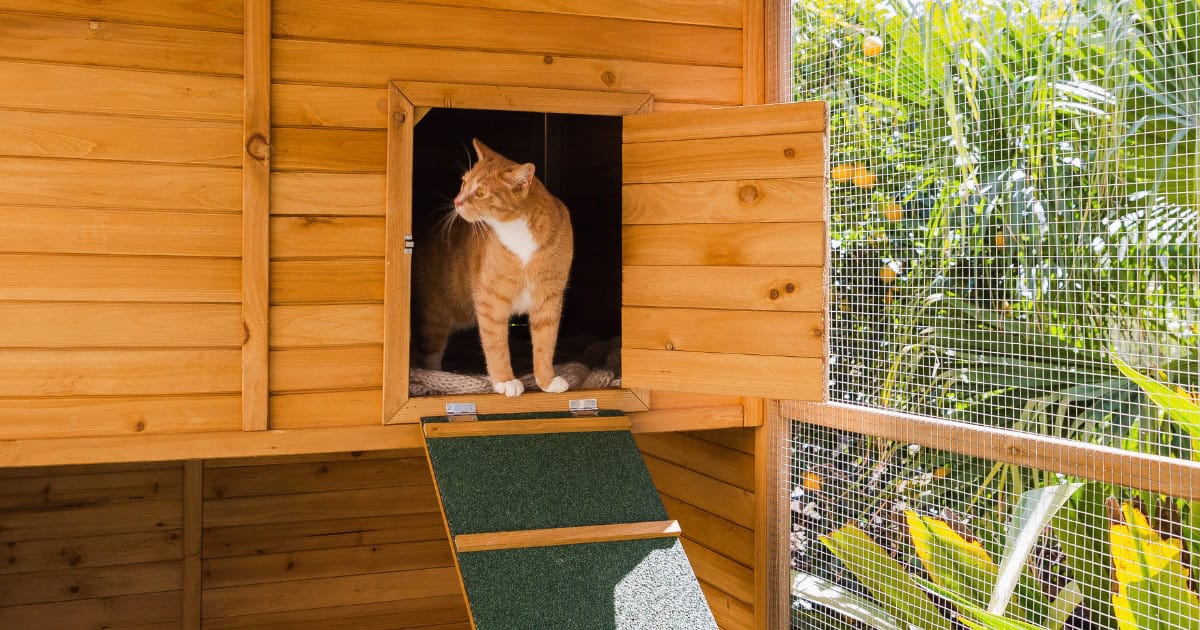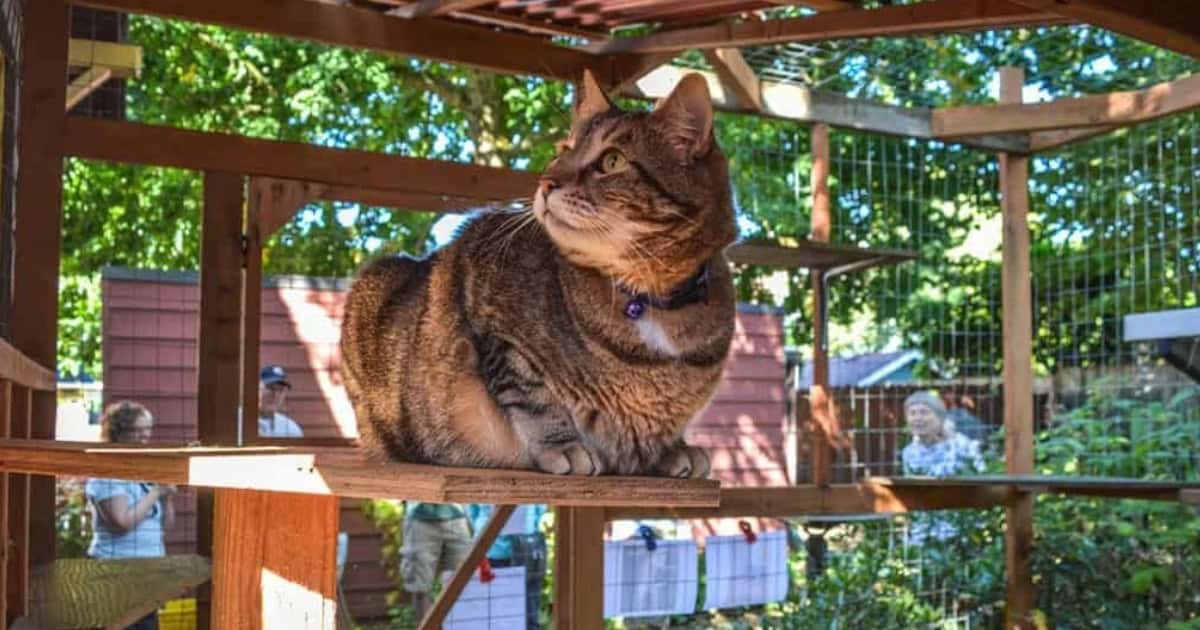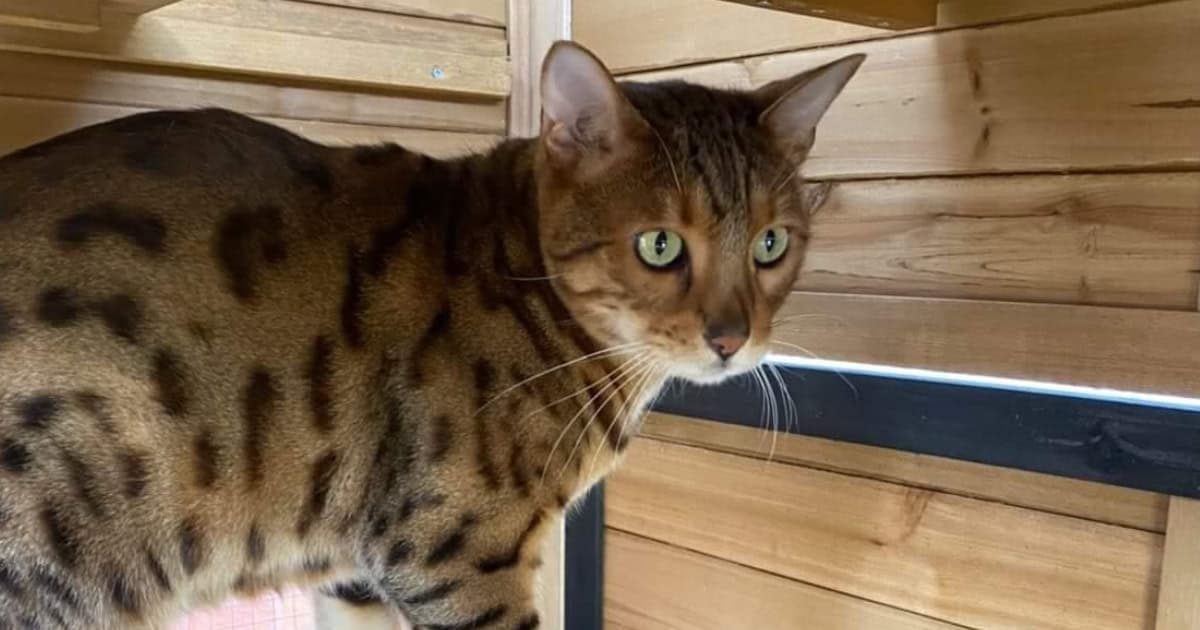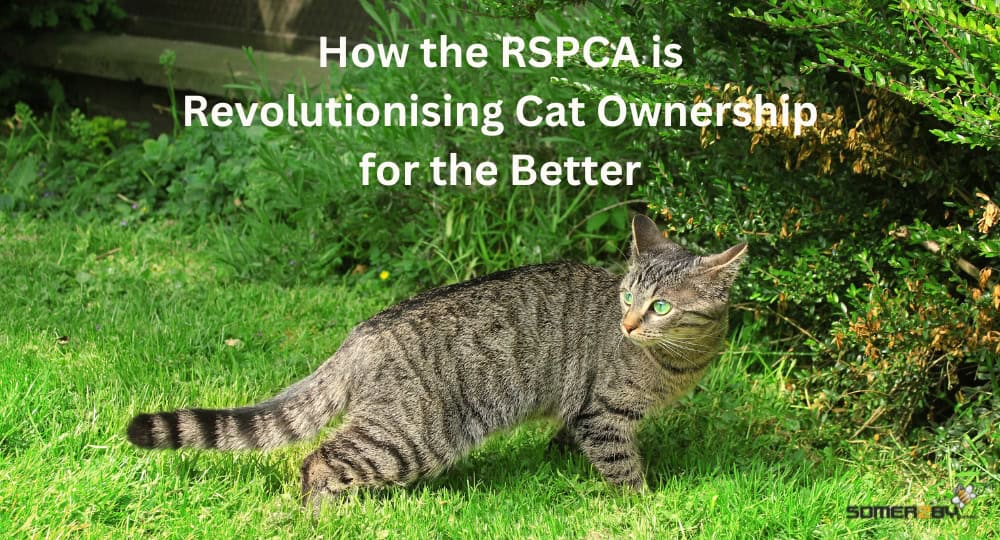Cats, Info Guides
How the RSPCA is Revolutionising Cat Ownership for the Better
Hi, I’m Toni! As both a cat lover and owner of Somerzby, I am deeply passionate about the welfare and safety of our feline companions.
With a genuine commitment to protecting cats and preserving the delicate balance of our local ecosystems, I recently embarked on a journey to understand the significance of containing cats at home.
In this blog, we explore how the RSPCA’s Keeping Cats Safe at Home program benefits both cats and native wildlife.
Drawing from my conversations with both the RSPCA themselves and local councils involved in the program, we’ll uncover the challenges faced, the initiatives implemented, and the remarkable impact achieved through collaborative efforts.
Join me as we gain a better understanding of responsible cat ownership and its implications for the natural environment.
Importance of Containing Cats at Home
Keeping cats at home benefits both our feline companions and Australia’s native wildlife.
Cats that aren’t allowed to roam the streets live longer.
The average indoor cat lives 12-18 years while outdoor cats have a much shorter life expectancy, typically only 2-5 years.
This difference in life expectancy is attributed to the myriad of risks and dangers that outdoor cats face, which are largely absent for indoor cats.
By keeping them confined to your own property, cats are protected from potential dangers including traffic, fighting with other cats, wild animals, diseases such as FIV, and the risk of becoming lost or stolen.
They also have a reduced exposure to ticks and other parasites.
Confining cats to their home environment also helps mitigate the significant threat they pose to native wildlife.

Fast Facts on Pet Cats in Australia
| Total pet cat population | 5.3 million |
| Percentage of households with pet cats | 33% |
| Size of animals cats can kill | Up to 4kg |
| Percentage of pet cats that roam | 71% |
| Percentage of roaming cats that hunt | 78% |
| Mean home range of a pet cat | 2 hectares (size of two playing fields) |
| Average density of roaming, hunting pet cats in Australian suburbs | 54 – 100 per sq km |
| Average number of animals (mammals, birds, and reptiles) killed per roaming cat per year | 186 |
| Number of all mammals, birds, reptiles killed by pet cats per year | 546 million |
| Number of native mammals, birds, reptiles killed by pet cats per year | 323 million |
With approximately 30% of Australian households owning a cat, the impact of their predation on wildlife cannot be ignored.
Domestic cats, even when well-fed, retain their hunting instincts, leading to the estimated death of around 390 million animals annually in Australia, including birds, reptiles and mammals.
By preventing cats from freely roaming outdoors, owners play a crucial role in safeguarding the delicate balance of local ecosystems and protecting vulnerable native species from further decline.

The ‘Keeping Cats Safe at Home’ Program
Keeping Cats Safe at Home is a four-year program organised by the RSPCA and funded by the NSW Environmental Trust. It aims to both keep cats safe and prevent them from harming native wildlife.
Described by the RSPCA as a “human behaviour change project,” the program focuses on responsible cat ownership and educating people about how to keep their cats protected.
The RSPCA is working with 11 diverse NSW councils to reach their goals:
- Blue Mountains City Council
- Byron Shire Council
- Campbelltown City Council
- City of Parramatta
- Hornsby Shire Council
- Kyogle Council
- Northern Beaches Council
- Shoalhaven City Council
- Tweed Shire Council
- Walgett Shire Council
- Weddin Shire Council

Council Initiatives under the Program
Let’s delve into the approaches adopted by the 11 local councils participating in the RSPCA’s Keeping Cats Safe at Home program.
We had the opportunity to interview both Weddin Shire Council and the Northern Beaches Council about their involvement, gaining valuable insights into their respective initiatives and the impact on their communities.
Microchipping and Desexing
Throughout the program, the RSPCA has provided funding to 25 local veterinary partners to desex and microchip over 1,500 cats.
This will significantly reduce the number of stray cats roaming in local council areas and make it easier for lost cats to be returned to their owners.
Weddin Shire Council is proud of their successes with this part of their program. We spoke to Council Ranger Allison Knowles who told us their goal was to desex and microchip 100 cats in 12 months.
However, they reached this goal in only 4 months and have now done over 270 cats. “The program is still running today,” she beamed.
The RSPCA told us that other councils had experienced great successes too.
Walgett Shire Council has desexed 194 cats, resulting in 91% decreased cat-related nuisance complaints to council across a three-year period.
Educating Citizens
The most important part of this program is educating cat owners about the benefits of keeping their cats safe on their own property.
RSPCA provided online education directly to the public via their website, downloadable resources, and a social media campaign that reached 2 million people in 2022-23.
They also organised educational incursions to primary school students, talking to them about caring for cats. They provided fun educational resources for teachers including puzzles, colouring-in and roleplaying games.
Interestingly, the Northern Beaches Council had a unique educational challenge. Manly is home to the only mainland fairy penguin breeding colony left in NSW, providing a critical habitat for these little penguins.
The council circulated hundreds of brochures to residents to educate them on the dangers roaming cats pose to fairy penguins and the importance of knowing their cat’s whereabouts.

Cat Enclosures
Cat enclosures are a great tool to allow your cat to enjoy time outdoors without being able to wander away from your property.
Throughout the program, the RSPCA ran multiple competitions to give away free cat enclosures. This not only provided enclosures to those who may not have been able to afford them but also advertised the concept of cat enclosures to thousands of social media users who may not have considered buying one previously.
Weddin Shire Council used some of their remaining grant money to buy enclosures for those who needed them.
They were able to purchase 29 cat enclosures, successfully containing around 200 cats who were previously allowed to wander the streets.
Here at Somerzby, we have a great range of quality cat enclosures that will keep your cat safely contained. Contact our customer service team if you need help choosing the best model for your situation.
With patience, outdoor cats can be transitioned to live happily in an enclosure, effectively doubling their life expectancy.

Challenges Faced by Local Councils
Each council faced unique challenges when implementing their programs.
Ranger Allison Knowles from Weddin Shire Council expressed that their greatest challenge was gaining the trust of local citizens.
When first offering free desexing and microchipping, people were guarded and worried they may get in trouble for not desexing their cats sooner.
Luckily, Weddin Shire is a small area and ranger Allison was able to speak to citizens one-on-one to gain their trust and explain the benefits of their program. “We had to show them we’re not the big bad wolf”, Allison joked.
Another challenge was transport. Many Weddin Shire citizens expressed interest in having their cats desexed and microchipped but were unable to get to the vets.
The council cleverly offered a free pickup and drop off service, getting cats there and home without any cost to their owners. This was hugely beneficial for the elderly, people with disabilities, and those living remotely.
The Northern Beaches Council expressed to us that their greatest challenge is support from higher up governments.
They are advocating for the State and Federal governments to pass legislative reforms so they can improve their abilities to protect native wildlife. They believe a nation-wide response to this issue is the best way to make real change.

Success Stories
The RSPCA reports that all 11 councils under their programs have had great success, with thousands of cats being desexed and microchipped.
This trickles down to really help local communities. Taylor Power from the City of Parramatta Council told the RSPCA, “Before the cat desexing program every second call we would get would be a cat job.
Now after 12 months of desexing we haven’t had any cat jobs in about two months even though this would usually be the height of kitten season.”
Weddin Shire Council told us their greatest success was the long-term trust they’ve gained from the community.
They have multiple families in their area who regularly feed over 50 cats each. Through the RSPCA’s program, they have created a relationship with these families. Now, when they get new cats, they straight away contact the council to desex and microchip them.

Toni’s Wrap
The RSPCA’s Keeping Cats Safe at Home program is a resounding success in its mission to promote responsible cat ownership and mitigate the impact of domestic cats on native wildlife.
Through collaborative efforts with 11 diverse NSW councils, the program has achieved remarkable outcomes.
From facilitating widespread desexing and microchipping initiatives to implementing educational campaigns, the program has significantly contributed to enhancing community awareness and engagement.
Additionally, initiatives promoting the use of cat enclosures have emerged as valuable tools in ensuring cats remain safe within their own properties.
The demonstrated successes, such as the substantial reduction in cat-related nuisance complaints and the establishment of long-term trust within communities, underscore the efficacy of the program’s strategies.
Importantly, the commitment of many councils to continue these initiatives beyond the program’s duration ensures that the benefits will endure for years to come.
Further Reading:
Cat Containment – A Vital Step To Protecting Wildlife




